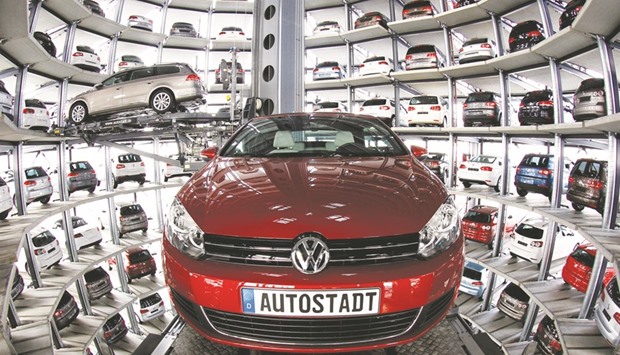Volkswagen is in advanced talks to team up with Tata Motors Ltd as the German automaker takes another stab at India’s fast-growing demand for cars, according to people familiar with the matter.
A deal to jointly develop vehicles for emerging markets may be announced at the Geneva auto show in early March, said the people, who asked not to be identified as the plan isn’t public. There’s no guarantee an agreement will be struck, they said.
Volkswagen is exploring – with its brands and “potential partners” – ways to “enlarge the product portfolio with tailor-made solutions” in India, VW said in an e-mailed statement on Wednesday. It’s “premature to make any further disclosures at the moment.”
Tata Motors has nothing to announce but “as prevalent in the automotive industry, we regularly have discussions with different companies to explore future collaborations,” a spokesman said by e-mail.
Competition for India’s booming market of middle-class drivers is intensifying, with global manufacturers from Fiat Chrysler Automobiles NV to Peugeot maker PSA Group expanding in the country. VW has been struggling for years to develop low-cost vehicles for emerging economies as its own technology proved too expensive. An alliance would give Tata Motors access to VW’s expertise, and sharing development will help both companies cut costs.
VW’s previous attempt to tackle emerging markets, through a small-cars partnership with Suzuki Motor Corp, ended with a fierce dispute two years ago.
Tata Motors, India’s fourth-biggest carmaker by volume, has been stepping up efforts to shed the budget image of its namesake brand. The company has been losing money in its home market and relies on the Jaguar and Land Rover luxury brands to provide most of its revenue.
The Indian automaker this month unveiled an upscale brand called Tamo that will be operated by a separate division. The first product with the new badge will be shown at the Geneva auto show. The automaker last week said it’s collaborating with Mircrosoft Corp to offer connected cars with advanced navigation systems that will also allow drivers to check on their vehicles remotely.
Tata Motors’ local deliveries climbed 13% to 141,454 units between April and January. Volkswagen’s sales jumped 18% to 41,285 vehicles, ranking it ninth. Industrywide demand rose 9.2% to 2.5mn autos in the period.
India, with the world’s second-biggest population, is an attractive market for carmakers given its comparatively low level of vehicle ownership. There were 32 passenger autos per 1,000 drivers in 2015, compared with 102 in China and 765 in North America, according to an EY report. Tata Motors has sought to forge alliances with global automakers in the past. In 2001, PSA Peugeot Citroen said it abandoned talks with the Tata company on joint production of a new car for the Indian market because the project wasn’t viable.
In 2006, Tata Motors formed a partnership with Fiat to sell the Italian company’s cars through its dealer network. They subsequently expanded the alliance to make cars and parts in India. In 2013, the two ended the distribution arrangement, with Fiat deciding to independently control commercial activities including marketing and sales. Fiat Chrysler in 2015 invested in its manufacturing joint venture with Tata to support production of Jeep vehicle in India. – With assistance from Subramaniam Sharma.

New Volkswagen models Golf Cabriolet and Passat are stored at the CarTowers in the theme park Autostadt next to the Volkswagen plant in Wolfsburg. The German automaker is exploring ways to enlarge the product portfolio with tailor-made solutions in India.
